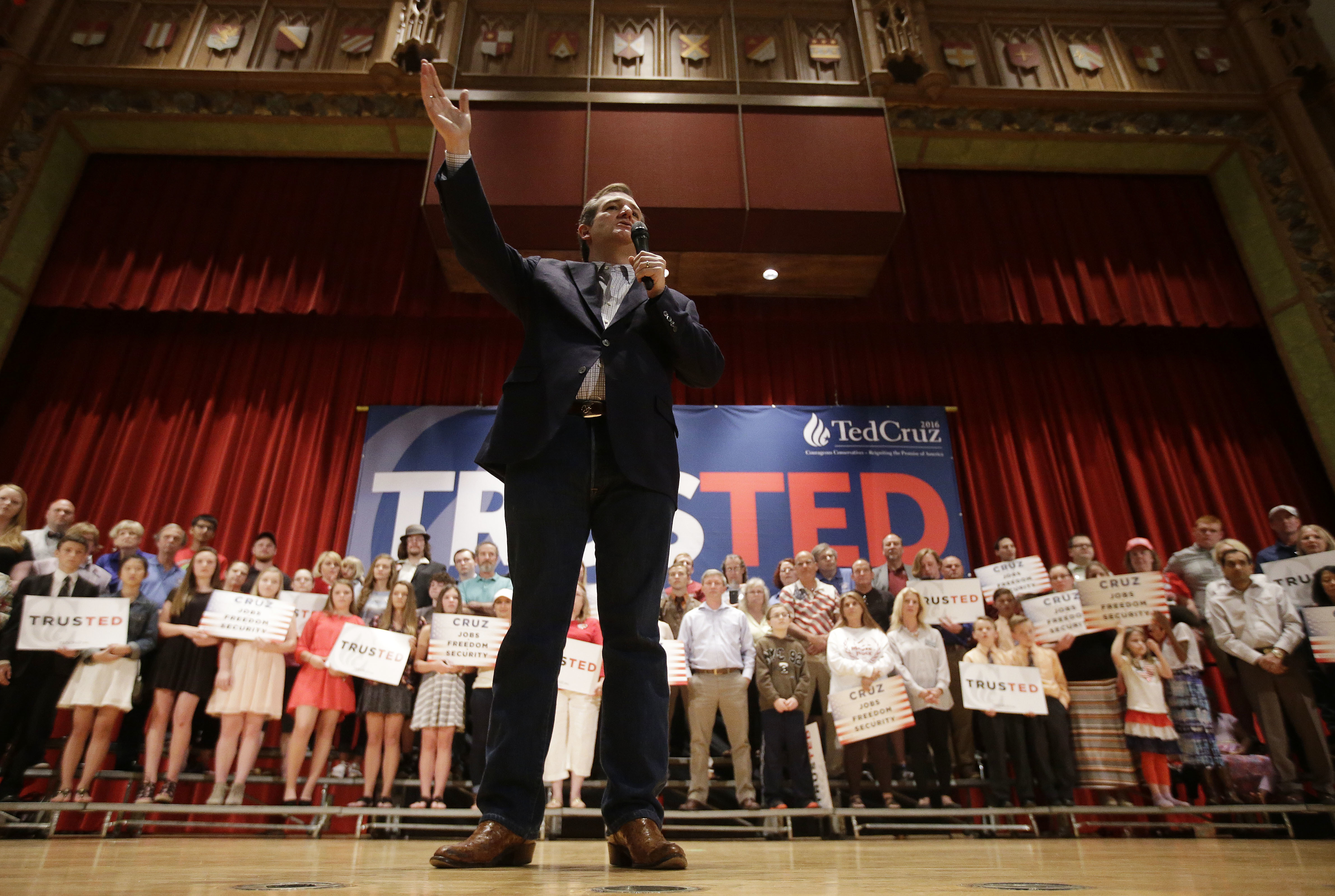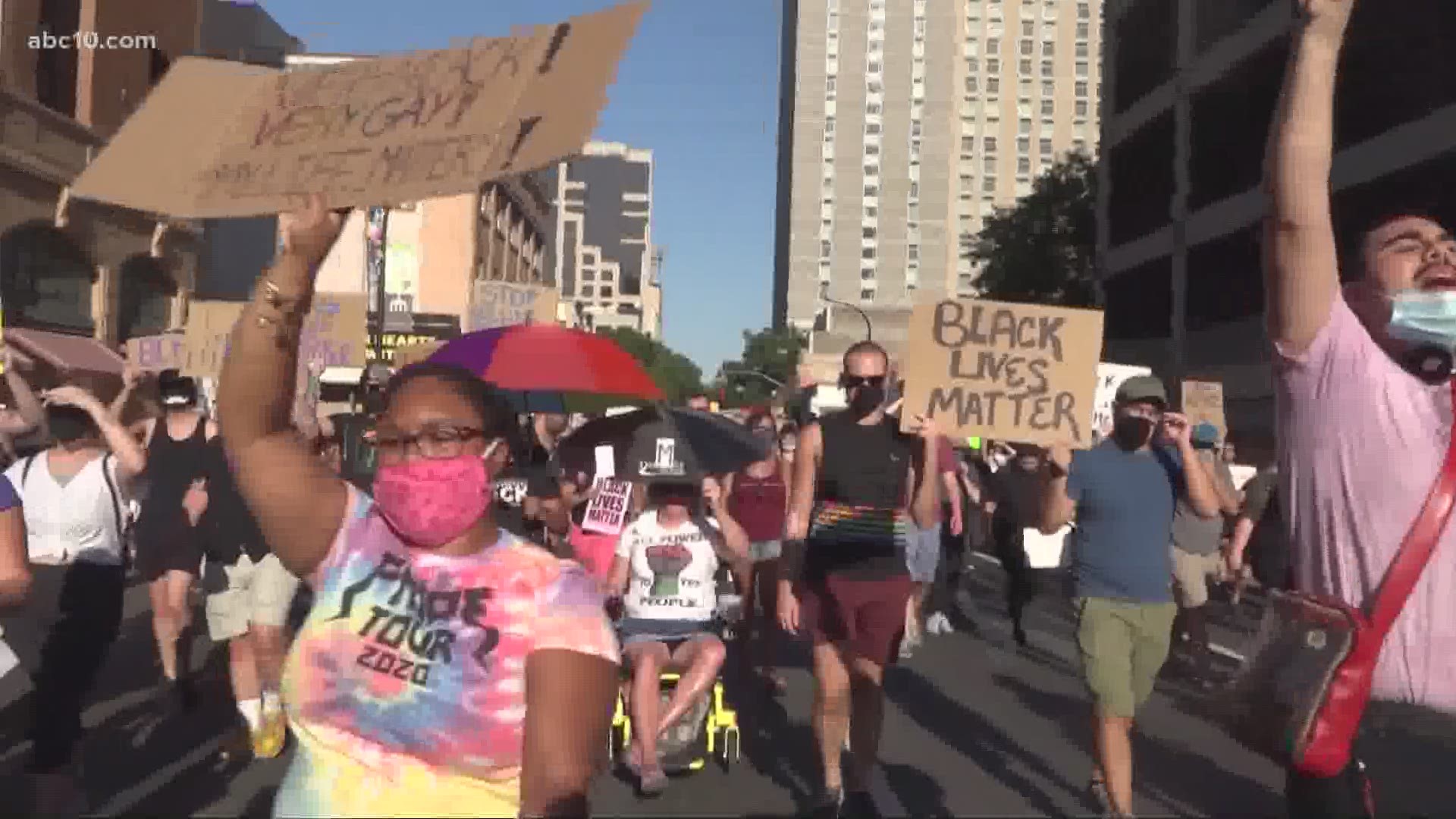INDIANAPOLIS — For the next week, Indiana's May 3 primary stands alone on the calendar, making it a magnet for presidential candidates.
![Cruz: Campaign heads to more favorable terrain [video : 83572294]](http://videos.usatoday.net/Brightcove2/29906170001/2016/04/29906170001_4864852699001_thumb-8a3660fb5d4f3815970f6a70670068ff.jpg?pubId=29906170001)
![AP GOP 2016 CRUZ A ELN USA IN [image : 83593684]](http://www.gannett-cdn.com/media/2016/04/27/USATODAY/USATODAY/635973538598385457-AP-GOP-2016-Cruz.jpg)
But the importance of Indiana's nominating contest goes well beyond its place on the schedule. It has emerged as a must-win state for Sen. Ted Cruz and Republicans trying to block front-runner Donald Trump from locking up the nomination. And it is one of Democrat Bernie Sanders' dwindling opportunities to stand in the way of secretary of State Hillary Clinton's march toward the nomination.
Trump and Clinton enter Indiana with strong momentum and are increasingly prepping for a potential fall campaign against each other after building on their sizable delegate leads in Tuesday night's primaries. Trump scored widely anticipated wins Tuesday in five Northeastern states: Pennsylvania, Maryland, Connecticut, Delaware and Rhode Island. On the Democratic side, Clinton won four of those states, while Sanders picked up Rhode Island.
![Primary takeaways: Clinton, Trump pick up steam in Amtrak states [oembed : 83592950] [oembed : 83592950] [oembed : 83592950] [oembed : 83592950] [oembed : 83592950] [oembed : 83592950]](/Portals/_default/Skins/PrestoLegacy/CommonCss/images/smartembed.png)
Even before those primaries ended, Indiana was bombarded with candidate visits and presidential campaign commercials. Cruz has been barnstorming the state for a full week. Trump is scheduled to hold a second rally Wednesday at the Indiana State Fairgrounds. Clinton toured factories in Northern Indiana on Tuesday. And Sanders has rallies planned Wednesday at Purdue and Indiana universities.
Hoosier voters aren't accustomed to so much attention. Usually, the nominees are already determined by the time the contest comes here.
"Indiana has transitioned from a state that doesn’t matter to a state that will matter more than any other in determining the winner of the Republican contest between now and June 7," said David Wasserman, an election analyst with the nonpartisan Cook Political Report in Washington, D.C. "Five states voted Tuesday, but there’s five times as much drama in Indiana."
Candidates and outside groups have already blasted Indiana with more than $5.5 million in television ads, according to SMG Delta/NBC News. That's more than in Connecticut, Maryland, Delaware and Rhode Island combined.
The activity reflects the wide-open nature of Indiana's contest. The state represents a return to the industrial Midwest, where results in other states have been mixed for Trump and Clinton. Indiana also has a large number of evangelical Christians, a group that has helped propel Cruz to victory in some states. Public polling here — which has been scant — shows Cruz within striking distance of Trump and Clinton and Sanders in a dead heat.
![AP DEM 2016 CLINTON A ELN USA IN [image : 83593790]](http://www.gannett-cdn.com/media/2016/04/27/USATODAY/USATODAY/635973539868857601-AP-DEM-2016-Clinton.1.jpg)
The stakes are especially high on the Republican side, where 57 delegates are up for grabs. Those delegates could play a key role in determining whether Trump, the billionaire real estate developer and reality TV star, can reach the required 1,237 delegates he needs to secure the nomination and avoid a contested Republican National Contention in Cleveland this summer.
"The national attention has been heating up and it will become white hot by the time we get to May 3," said John Hammond, Indiana's Republican National committeeman. "We are at the pivot point of American politics. The stakes couldn’t be higher, and it appears and the campaigns have put all their chips on the line in Indiana."
At a campaign rally Tuesday at Hoosier Gym in Knightstown — where the movie "Hoosiers" was filmed — Cruz said Trump's success in Tuesday's primaries underscored the importance of Indiana in the battle for the GOP nomination.
"Donald Trump is likely to win some states, and the media is going to have heart palpitations this evening," Cruz said to about a thousand supporters. "Tonight, this campaign moves back to more favorable terrain. Tonight, this campaign moves to Indiana."
![Cruz re-creates 'Hoosiers' scene; Twitter mocks 'basketball ring' reference [oembed : 83593090] [oembed : 83593090] [oembed : 83593090] [oembed : 83593090] [oembed : 83593090] [oembed : 83593090]](/Portals/_default/Skins/PrestoLegacy/CommonCss/images/smartembed.png)
Indiana will serve as a testing ground for an unusual noncompete agreement that Cruz struck with the trailing candidate on the Republican side, Ohio Gov. John Kasich. Kasich agreed not to campaign in Indiana, while Cruz said he will avoid campaigning in Oregon and New Mexico. The two men are hoping the arrangement will consolidate the anti-Trump vote.
Trump has blasted the arrangement, calling it desperate. He is due back at the state fairgrounds on Wednesday, where he is expected to appear with Indiana basketball coaching legend Bobby Knight. He will also tape a town hall with Fox News' On the Record with Greta Van Susteren in Indianapolis.
Haley Barbour, a former Republican National Committee chairman, said both Trump and Cruz have much at stake in Indiana.
"If Trump loses, it could shift the momentum," he said. "If Trump wins, then he makes a case that he could win all over the country, even in a two-man race, and that would be very beneficial to him as he prepares for the West Coast primaries. So both sides have a lot to gain."
The Democratic primary is somewhat less consequential. Most analysts see a clear path for Clinton, who toured two manufacturing facilities in Northern Indiana on Tuesday, while her husband, former president Bill Clinton, campaigned in Indianapolis.
![Analysis: 4 ways to see the emerging and polarizing Clinton-Trump fall campaign [oembed : 83593128] [oembed : 83593128] [oembed : 83593128] [oembed : 83593128] [oembed : 83593128] [oembed : 83593128]](/Portals/_default/Skins/PrestoLegacy/CommonCss/images/smartembed.png)
But Sanders, the self-described Democratic socialist, has shown remarkable resilience, especially with younger voters. He should see them Wednesday during his visits to West Lafayette and Bloomington.
The last time Indiana came close to mattering so much was during the Republican presidential contest 40 years ago, when Ronald Reagan and Gerald Ford battled all the way to the 1976 convention.
Frank Donatelli, a Republican campaign consultant, was an organizer with Reagan's campaign in Indiana.
"I didn’t think in the era of the mass primary, with conventions pre-arranged, that we would be looking at something like this again," he said. "(Indiana) is one of two remaining states where all three candidates feel like they have a chance to do well, if not win."
The result is a political atmosphere traditionally associated with the early primary and caucus states.
"Now," he said, "you know what Iowa and New Hampshire are like."
Contributing: The Associated Press
![Presidential Primaries to Date and Upcoming Contests [oembed : 83593248] [oembed : 83593248] [oembed : 83593248] [oembed : 83593248] [oembed : 83593248] [oembed : 83593248]](/Portals/_default/Skins/PrestoLegacy/CommonCss/images/smartembed.png)


